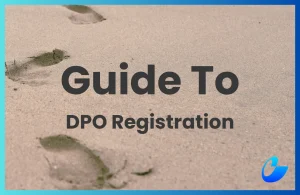With recent amendments to the Personal Data Protection Act (PDPA) coming into force, Malaysian businesses that meet the threshold for appointing a DPO must now make a strategic decision:
“Should we appoint an internal DPO or outsource the role?”
This article breaks down the key considerations of both models, helping you choose an approach that aligns with your organisation’s structure, risk profile, and compliance obligations.
Clarifying the DPO’s role
While there is no formal academic or professional qualification required under the DPO guideline at this moment, a DPO must fulfil certain requirements to qualify for the role:
- physically present in Malaysia for at least 180 days in a calendar year
- be easily contactable via any means (e.g., phone, email, messaging tools)
- proficient in Bahasa Melayu and English
- no conflict of interest with their current role
- understand your business and ideally have knowledge of data protection and IT security
- report directly to top management and be empowered to act independently
Whether in-house or outsourced, this ensures they have sufficient competency in data protection law and governance.
Appointing an in-house DPO
Appointing an in‑house DPO means promoting one or more qualified team members to the position.
Why this approach works well:
- they already know how your business runs, from systems to people
- response time is faster because they are just a desk away
- culturally, they are part of the team and this makes collaboration smoother
What to watch out for:
- they may not be trained in legal or technical aspects of the PDPA
- if the DPO wears too many hats it can create role conflict
- internal candidates may require time and resources for upskilling
- if their role expands significantly, you may need to need to adjust their compensation accordingly
Outsourcing the DPO role
Important note for businesses in Malaysia:
Outsourcing the DPO role does not transfer legal responsibility. While tasks may be delegated to an external service provider, the organisation remains fully accountable for ensuring compliance with the PDPA.
Outsourcing the DPO role means engaging an external professional firm or sole practitioner.
Why this approach works well:
- you get PDPA specialists with hands-on experience in data protection law
- support can scale up or down depending on your business size, complexity, and risk profile
- the outsourced DPO operates solely by compliance obligations
What to watch out for:
- they usually support multiple clients, so may not always be immediately available
- they need time to become familiar with your systems and teams before they can be fully effective
- high-quality support can significantly and unexpectedly increase costs
You should ensure your service contracts clearly cover all requirements and scope, making sure both parties are aligned on roles, expectations, and deliverables from the start.
For a deeper dive, see our full guide to DPO outsourcing in Malaysia.
Conclusion
Whatever model you choose (outsourced or in-house), your DPO must be empowered to act, sufficiently resourced, independent in function, and properly registered with the Commissioner.
If you would like assistance, our team is here to help evaluate your position, draft service agreements, and ensure your appointment meets PDPA expectations. Reach out to get started.










